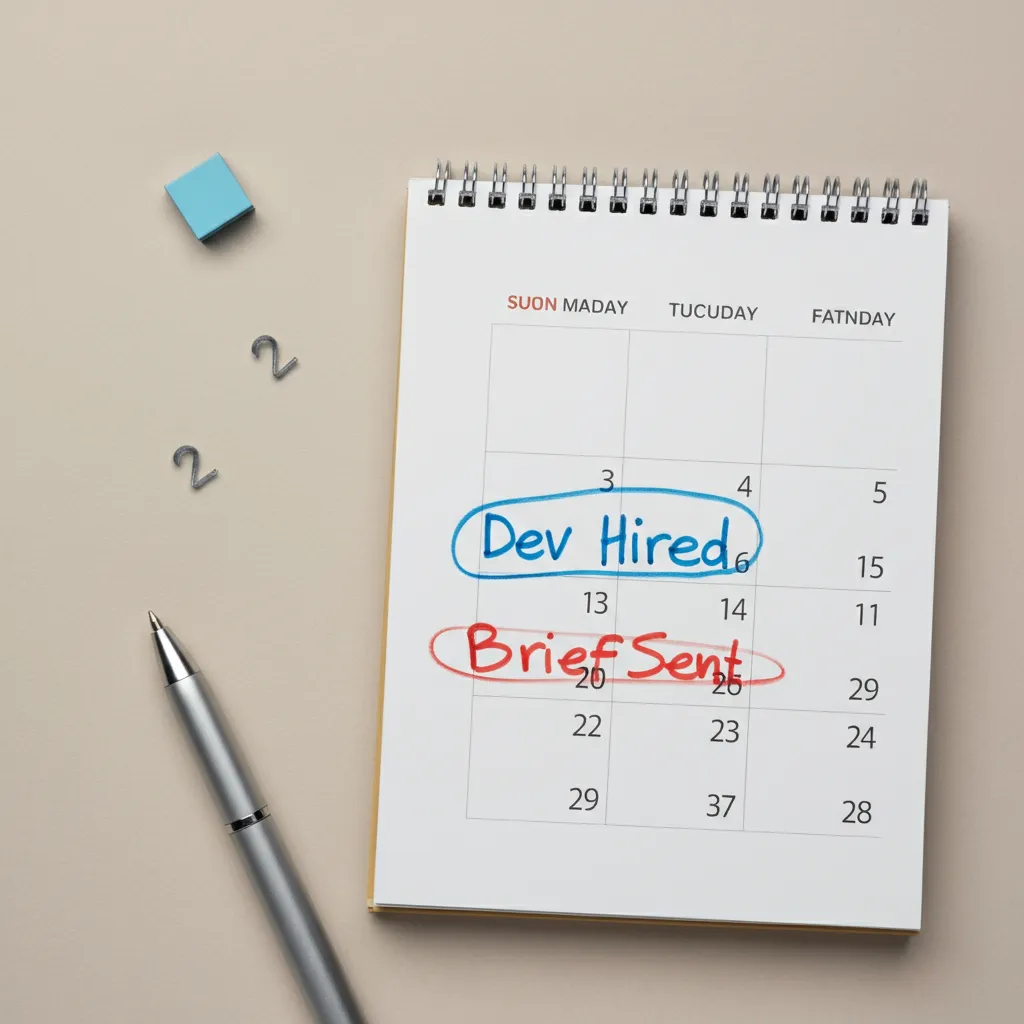What Does a Perfect Remote Developer Actually Look Like — and What Should You Really Screen For?
Introduction
Hiring remote developers is no longer a trend — it’s a core strategy for tech teams scaling quickly and globally. But the market is saturated with CVs, portfolios, and candidates who seem qualified on paper yet fail to deliver in real product environments. So what does a "perfect" remote developer really look like? And more importantly — how do you know one when you meet them?
At Wild.Codes, we’ve vetted over 13,000 remote developers and worked with 150+ product-driven teams across the globe. Based on this experience, we’ve developed a real-world profile of the ideal remote dev — the kind who delivers, collaborates, and integrates like they’ve been part of your team all along.

The Problem with Traditional Screening
Most hiring processes still prioritize static CVs, school names, and theoretical coding tests. These methods:
- Fail to capture real-world collaboration skills.
- Ignore time-zone communication challenges.
- Overvalue CS theory over product thinking.
- Lead to bad hires, churn, and wasted cycles.
Key stat: In fast-moving teams, one poor hiring decision can delay roadmaps by 4–8 weeks.
You don’t need a rockstar. You need a contributor who fits your stack, works your hours, and integrates fast.
Traits of a Truly Great Remote Developer
Based on thousands of developer placements and feedback loops, here are the must-have qualities of remote devs who actually accelerate teams:
1. Outcome-Oriented Thinking
They care about the product, not just the code. They ask: "Why are we building this?" and "How will this impact users?"
2. Asynchronous Communication Skills
Slack, Notion, Loom, Git — they know how to keep the team in sync without daily standups.
3. Proactivity & Ownership
Great remote devs flag problems early, suggest improvements, and don’t wait for detailed specs to get started.
4. Time Zone Alignment
Overlap matters. 2–4 hours of real-time collaboration goes a long way for velocity.
5. Tech Stack Fluency + Adaptability
Not just what they know — but how fast they pick up what they don’t. Real-world project experience > years on paper.
Red Flags: What to Avoid at All Costs
Equally important as spotting great traits is recognizing the signs of a mismatch early. Here are the most common red flags that often slip through traditional hiring processes:
1. Overemphasis on Theoretical Tests
If their only strength is solving algorithm puzzles but they can’t explain how to implement a feature in production — that’s a warning sign.
2. Poor Communication in Async Tools
Missing updates, low Slack presence, long delays in Git PRs — this adds hidden friction to remote workflows.
3. "Tell Me What to Do" Mentality
Startups need builders, not task-takers. If someone waits for detailed specs and avoids decisions, they’ll slow your team down.
4. Zero Product Curiosity
A dev who doesn’t ask about users, features, or goals will likely deliver features that don’t move the needle.
5. Misalignment with Culture or Time Zones
Even technically strong devs can cause friction if their style doesn’t match your communication norms or schedules.
Wild.Codes insight: Every developer we match is vetted not just for hard skills, but for communication, adaptability, and product mindset — using real-world scenarios.
The Wild.Codes Remote Dev Profile: Our Gold Standard
Here’s how we define the perfect remote developer, based on thousands of successful matches:
- Stack Fit: Has 3+ years of experience in your core stack or equivalent projects.
- Delivery Record: Has shipped real products or features in startups or agile teams.
- Cultural Adaptability: Can work cross-functionally with product, design, and QA.
- Timezone Compatibility: 3+ hours daily overlap with your team.
- Ownership: Takes initiative, flags issues, and iterates fast.
This profile isn’t built on theory — it’s shaped by real hiring results across dozens of startups.

Why CVs and Portfolios Aren’t Enough Anymore
Traditional resumes are built to impress — not inform. Portfolios often show polished side-projects that don’t reflect collaboration or problem-solving under pressure.
Here’s why relying solely on CVs leads to bad hires:
- Candidates exaggerate roles and skills.
- There’s no indicator of work style, speed, or communication.
- You miss key factors like reliability, initiative, or real-world collaboration.
What to Screen Instead:
- Scenario-Based Tasks — Not whiteboard puzzles, but realistic problems they’d face on your team.
- Communication Simulations — See how they respond to async updates, PR reviews, and blockers.
- Tech/Product Interviews Together — Let dev + product leads jointly assess real contribution capacity.
Wild.Codes advantage: Our pre-vetting includes actual dev tasks and human assessments from tech leads and PMs who’ve worked in startups.

The Cost of Getting It Wrong
Hiring the wrong remote developer isn’t just a waste of time — it’s a risk to your roadmap.
Real costs include:
- Burnout for your core team.
- Missed deadlines.
- More pressure on other roles.
- Legal/financial overhead if you have to offboard.
And in many cases, the person who leaves first isn’t the bad hire — it’s your top engineer who’s tired of picking up the slack.
This is why investing in smart screening isn’t optional. It’s the foundation of scalable product velocity.
How Wild.Codes Screens for Perfect-Fit Remote Developers
Our process is designed around what fast-moving tech teams actually need — not what looks good on paper.
Step 1: AI-Powered Screening
We filter 13,000+ developers based on:
- Stack match
- Time zone
- Experience level
- Language and communication fluency
Step 2: Human Technical Vetting
Every developer is tested by senior engineers from real startups. We look at:
- Problem-solving in unfamiliar environments
- Code readability, maintainability, and pragmatism
- Collaboration on real-world use cases
Step 3: Product Thinking & Ownership Test
We simulate real sprints and look for:
- Decision-making with partial information
- Prioritization under constraints
- Communication and follow-through
Step 4: Culture & Collaboration Assessment
We evaluate how well the developer will mesh with your working style, not just your codebase.
Wild.Codes Developer Match Guarantee
We’re so confident in our vetting that we guarantee:
- A shortlist of 1–3 perfect-match devs within 48 hours.
- Seamless onboarding support.
- Full compliance, payroll, and admin handled.
- Easy replacement if someone doesn’t fit.
Our clients don’t scroll through hundreds of CVs. They just choose from 2–3 developers who are already a fit.

Final Thoughts
The perfect remote developer isn’t defined by their resume or how well they can reverse a binary tree. They’re defined by their ability to embed into your team, own outcomes, and ship product.
If your hiring process is stuck in the past, you’ll keep getting past-era results: slow hires, poor fits, and delayed delivery.
Wild.Codes is built for the modern CTO and product leader:
- We help you hire developers who think like teammates, not freelancers.
- We cut your time-to-hire to 48 hours.
- We reduce churn, burnout, and admin load.
Let us help you build the engineering team your product deserves.
• PHP expertise;
• Database management skills;
•Jungling traits, methods, objects, and classes;
• Agile & Waterfall understanding and use;
• Soft skills (a good team player, high-level communication, excellent problem-solving background, and many more)
• OOP & MVS deep understanding;
• Knowledge of the mechanism of how to manage project frameworks;
• Understanding of the business logic the project meets;
• Cloud computing & APIs expertise.
• Reasonable life-work balance;
• The opportunity to implement the server-side logic via Laravel algorithms;
• Hassle-free interaction with back-end and front-end devs;
• Strong debugging profile.
• Using HTML, XHTML, SGML, and similar markup languages
• Improving the usability of the digital product
• Prototyping & collaboration with back-end JS experts
• Delivery of high-standard graphics and graphic-related solutions
• Using JS frameworks (AngularJS, VueJS, ReactJS, etc
• Clean coding delivery and timely debugging & troubleshooting solution delivery
• UI testing and collaboration with front-end JS teammates
• Database experience
• Building APIs while using REST or similar tech solutions
• Collaboration with project managers and other devs
• Delivery of design architecture solutions
• Creation of designs & databases
• Implementation of data protection and web cybersecurity strategies.
• Both front-end and back-end qualifications



.png)
.png)



